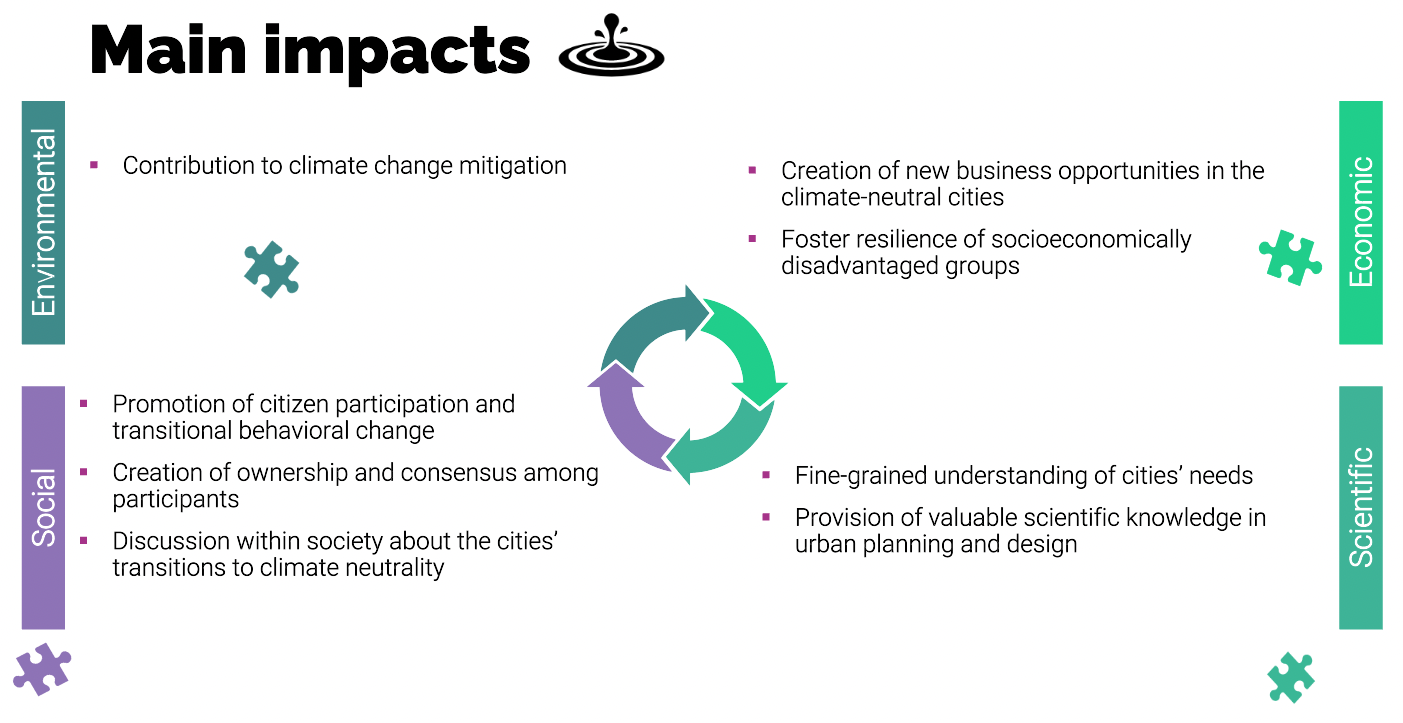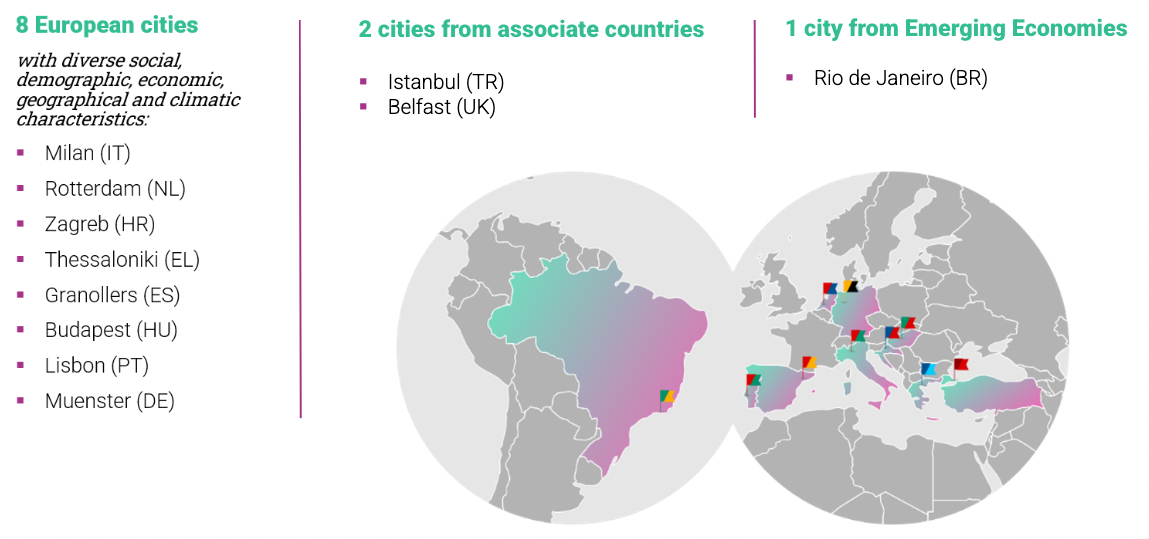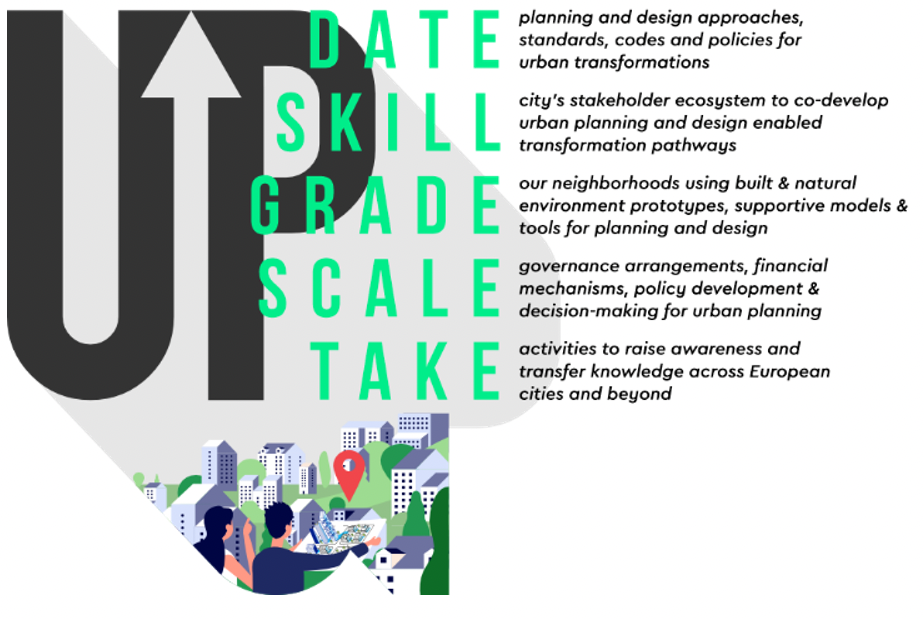UP2030 “Urban Planning and design ready for 2030”, is a Horizon Europe Innovation Action that aims to support cities in achieving climate neutrality through socio-technical transitions. The project is coordinated by Fraunhofer Institute and with the participation of 46 European partners. The project will run for three years starting from January 2023, with a budget of EUR 4.23 mln. The project puts cities at centre of the innovation approach to drive transformative change by implementing pilot action in 10 cities of Europe and beyond (Budapest, Granollers, Instanbul, Lisbon, Milan, Muenster, Rotterdam, Thessaloniki, Zagreb, Rio de Janeiro).

Main expected impacts of UP2030

Case study cities
The project objective to support cities in driving the socio-technical transitions & meet climate neutrality and social innovation by 2030. To achieve this, UP2030 focuses on innovative urban planning and design methods and tools to develop better connected, more compact, net-zero neighbourhoods in the city pilots, creating synergies to foster a vision-driven approach. Citizen participation is integrated within the whole development of the project to ensure that real needs of citizens are properly considered and reflected in the vision created for the city and that pilot cases experiementation delivers positive impacts in terms of spatial justice.

Project methodology – the 5-UP approach
To accelerate the implementation pace in many cities, upscale solutions and respond to the climate emergency, UP2030 proposes the 5UP-approach for activating cities and stakeholders through 5 interlinked phases: (1) updating policies; (2) up-skilling to build capacity of city stakeholder ecosystem that shall deliver actions; (3) up-grading the cities efforts to go towards net-zero carbon emissions, by developing solution prototypes (digital and physical) at neighborhood scale in pilot areas; (4) upscaling to achieve city-wide impact by shaping the enabling governance arrangements and matching project portfolios to financial resources; and (5) up-taking, by sharing best practices across European cities. UP2030 will be implemented through 6 WPs which are strongly interlinked to achieve the project objectives and reflect the above-mentioned methodology.
Our role at TU Delft is to manage WP3 aiming at up-skilling and helping our pilot cities to select the right packages of solutions to address the needs of their pilot areas and experiment with those solutions in efforts to promote carbon-neutrality. In particular the Delft team leads the task focusing on spatial justice and citizen participation, as part of which we will develop a spatial justice benchmarking framework.
TU Delft team for UP2030: Roberto Rocco (lead), Juliana Goncalves, Marcin Dąbrowski.